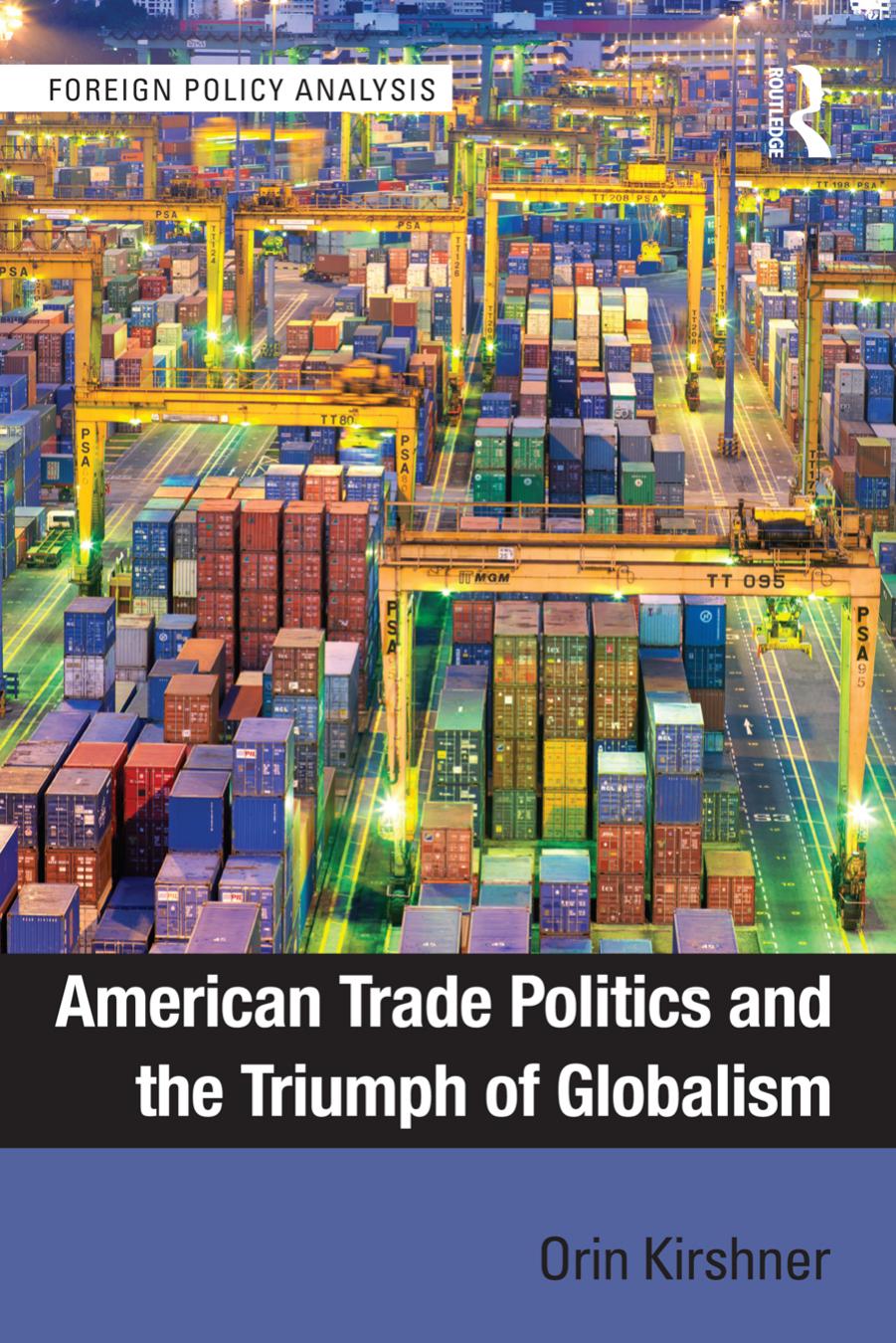American Trade Politics and the Triumph of Globalism by Orin Kirshner

Author:Orin Kirshner [Kirshner, Orin]
Language: eng
Format: epub, pdf
Tags: International Relations, Trade & Tariffs, International, Economics & Trade, United States, 20th Century, Political Science, History, Business & Economics
ISBN: 9781317804123
Google: icmLAwAAQBAJ
Goodreads: 22214632
Publisher: Routledge
Published: 2014-05-09T00:00:00+00:00
Conclusion: The Triumph of Globalism in the RTAA of 1945
The RTAA of 1945 was the first trade act of the postwar period which shifted trade policy-making authority from Congress to the president for the purpose of exercising world trade leadership. And it was pursuant to the actâs tariff-cutting power that the State Department negotiated the GATT, thereby consummating a further transfer of trade policy-making authority from the American state to an international regime for the management of world trade.
This chapter has shown that Americaâs new global trade policy was first and foremost a reaction to external events: the emergence of the United States as an economic superpower at the end of World War II and the concomitant generation of a political vacuum at the level of international trading relationships. Taken together, these external phenomena set the stage for a pattern of domestic politics that made possible a global turn in U.S. trade policy. At the core of this pattern was the formulation of a new American trade policy through a postwar policy planning alliance between the New York-based CFR and the U.S. Department of State. This globally oriented partnership was unambiguously anchored in Americaâs superpower position in world trade, for it fused the economic interests of the nationâs largest and most internationally oriented corporations, investment banks, and corporate law firms with the foreign policy interests of the executive branch.
Yet the CFRâState Department alliance was not able to implement its postwar plans without convincing Congress to delegate its Article I Section 8 power to âregulate commerce with foreign nationsâ to the president. Consequently, the State Department worked to mobilize Americaâs new-found position as a world trade superpower into the legislative process. It did so in two ways: first, it mobilized support for the administrationâs trade bill among domestic economic groups with an interest in export expansion; and second, it couched the administrationâs trade bill in terms of foreign policy. The introduction of these elements into the trade policy-making process in Congress generated a global bias in its legislative proceedings and created the domestic political foundations for the enactment of the RTAA of 1945. Viewed in this light, the triumph of globalism in the RTAA of 1945 reflected a pattern of domestic politics anchored in the nationâs superpower position in world tradeâa pattern that reflected the domination of the trade policy-making process by the nationâs largest and most internationally oriented corporations, investment banks, and corporate law firms and the executive branch of the American state.
Download
American Trade Politics and the Triumph of Globalism by Orin Kirshner.pdf
This site does not store any files on its server. We only index and link to content provided by other sites. Please contact the content providers to delete copyright contents if any and email us, we'll remove relevant links or contents immediately.
Zero to IPO: Over $1 Trillion of Actionable Advice from the World's Most Successful Entrepreneurs by Frederic Kerrest(4518)
Machine Learning at Scale with H2O by Gregory Keys | David Whiting(4292)
Never by Ken Follett(3937)
Harry Potter and the Goblet Of Fire by J.K. Rowling(3848)
Ogilvy on Advertising by David Ogilvy(3604)
Shadow of Night by Deborah Harkness(3359)
The Man Who Died Twice by Richard Osman(3072)
Book of Life by Deborah Harkness(2931)
The Tipping Point by Malcolm Gladwell(2914)
Will by Will Smith(2910)
0041152001443424520 .pdf by Unknown(2843)
Purple Hibiscus by Chimamanda Ngozi Adichie(2825)
My Brilliant Friend by Elena Ferrante(2824)
How Proust Can Change Your Life by Alain De Botton(2805)
How to Pay Zero Taxes, 2018 by Jeff A. Schnepper(2646)
Hooked: A Dark, Contemporary Romance (Never After Series) by Emily McIntire(2550)
Rationality by Steven Pinker(2352)
Can't Hurt Me: Master Your Mind and Defy the Odds - Clean Edition by David Goggins(2323)
Borders by unknow(2303)
